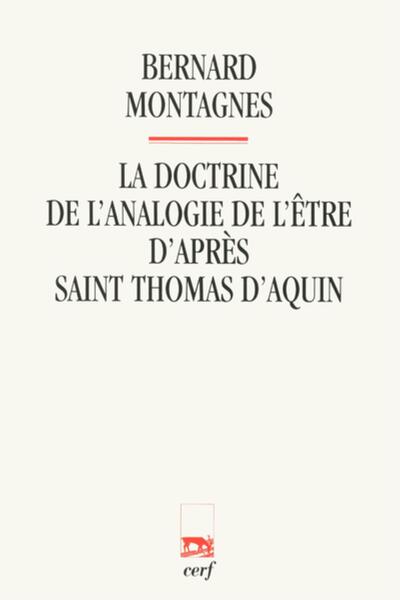- EAN13
- 9782204086738
- Éditeur
- Cerf
- Date de publication
- 6 mars 2008
- Collection
- BIBLIO DU CERF
- Nombre de pages
- 211
- Dimensions
- 24,2 x 16,5 x 1,9 cm
- Poids
- 365 g
- Langue
- fre
La Doctrine De L'Analogie De L'Être D'Après Saint Thomas D'Aquin
Bernard Montagnes
Cerf
Prix public : 29,70 €
Le problème de l'analogie de l'être fut l'un des plus souvent scrutés en philosophie thomiste, et en philosophie tout court, pendant le XXe siècle. Non sans raison, dans la mesure où il gouverne la structuration de l'étant autour de la substance, et donc l'unification de la métaphysique comme science de l'être et, en outre, notre capacité de dire quelque chose de pertinent sur Dieu à partir du spectacle des créatures. Or un tel problème a d'autant plus posé de difficultés qu'à celles qui viennent de l'élévation de son objet s'est ajoutée celle d'un recouvrement de la pensée de Thomas d'Aquin par diverses traditions interprétatives. Celles-ci, croyant lui être fidèles tout en tirant le problème vers une modernité plus conceptuelle, avaient faussé la lecture de l'œuvre thomasienne. Le travail du père Montagnes, plus de quarante ans après sa parution, reste la référence qui a bouleversé la donne. Conduit comme une enquête policière, il rend manifeste l'évolution mais aussi la cohérence de saint Thomas sur l'analogie, et l'incompatibilité de cette position avec nombre de relectures thomistes. Ce livre est un modèle de rigueur historique et de clarté doctrinale. -- The problematic of the analogy of being was often studied by Thomistic philosophy, and by philosophers in general, during the 20th century. And not without reason, since it governs the structuration of being around substance, and so the unification of metaphysics as the science of being, as well as our capacity to say something pertinent to God based on the vision of his creatures. But this problematic became even more complex when the thinking of Thomas Aquinas was received by diverse interpretive traditions. Believing they were acting in good faith by treating the problem in a more modern, conceptual light, they distorted the reading of Thomas's works. The work of Father Montagnes, more than forty years after its publication, remains the reference which radically changed everything. Proceeding as in an investigation, he reveals St. Thomas's evolution and coherency on the analogy, as well as the incompatibility of his position with many Thomistic interpretations. This book is a model of historical rigour and doctrinal clarity.


















